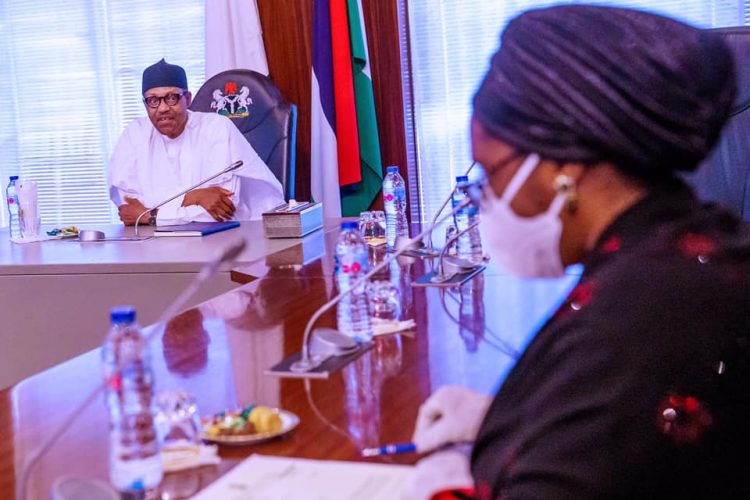There are no products in your shopping cart.
| 0 Items | £0.00 |


NIGERIA will be spending as much as 75% of her annual revenue on debt servicing by 2024 according to a recent grim report from the World Bank which indicates that the economy is being saddled with debts it cannot handle.
At the moment, Nigeria spends about $1.4bn out of its annual budget servicing debts, taking away money from key sectors like health and education. With the coronavirus lockdown, Nigeria's economy is facing a severe crisis as oil prices have crashed to below production costs and the global glut means the government is struggling to find buyers.
Faced with an inability to fund the 2020 budget in the wake of the coronavirus crisis, Nigeria's finance minister Zainab Ahmed approached the International Monetary Fund (IMF) for a loan. Over the last few days, a $3.4bn loan was approved and the country is also speaking to several other creditors to extend it credit.
However, the World Bank has warned that this is storing up trouble for the future as it will have dire economic consequences. In a report titled State debt management in Nigeria: Challenges and lesson learned, dated April 1, the World Bank highlighted institutional and capacity challenges in state debt management in the context of the Nigerian fiscal federalism system.
This report was part of a series produced by the Macroeconomics Trade and Investment Global Practice of the World Bank, led by Lilia Razlog, Yue Lee, Ying Li, and Jaime Bozo. It noted that the findings, interpretations, and conclusions expressed in the series were those of the authors and should not be attributed to the World Bank.
Highlighting national and state-level debt dynamics in Nigeria, the report observed that interest on loans amounted to 60% of the federal government’s revenue as of 2018. Latest figures released by Nigeria's Debt Management Office indicate that the federal government and the 36 states, as well as the Federal Capital Territory, owed a total of N27.4tn ($7bn) as of at December 2019.
Also, data from the Central Bank of Nigeria indicated that Nigeria spent $ 1.12bn on external debt service payment in the 10 months between January and October 2019.Driven by rising external debt, the debt-to-gross domestic product (GDP) ratio grew from 12.7% in 2013 to 19.2% in 2018.
In the same vein, the share of external debt increased steadily from 14% of total debt to more than 25% within the same period. According to the report, under the current policies, the federal government would face growing pressure to meet its large financing needs in the medium term.
It added: “A debt sustainability analysis conducted by the IMF as of end-2018 indicates that while Nigeria’s public debt-to-GDP ratio remains relatively low compared with other frontier market economies but the debt ratio is expected to rise under baseline, mainly driven by the federal government's fiscal deficit. It is projected that interest payment will rise to close to 75% of federal government revenue by 2024 from 60% in 2018.”
Although the federal government has insisted that Nigeria does not have a debt problem despite misgivings over the steady rise in the country’s debt portfolio, it has been widely accepted that the cost of debt servicing was unsustainable. This high cost of debt servicing has been blamed on the country’s weak revenue generating capacity.